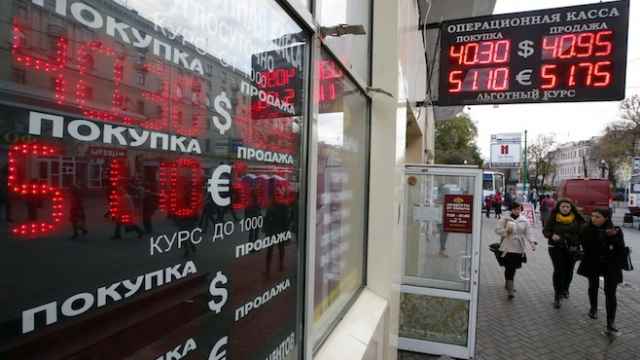A surprise jump in Russia's industrial production last month as a weaker ruble helped manufacturers has raised expectations the economy will escape a recession this year.
Analysts warn that more data is needed before they reassess generally gloomy predictions for Russia's economy, which is under heavy pressure as a result of Western sanctions over Ukraine and a sharp fall in price for oil, its major export.
September industrial output rose 2.8 percent compared with a year ago, and was up 2.7 percent from a month before, the Federal Statistics Service said on Wednesday.
That was significantly better than the 0.3 percent year-on-year increase predicted by analysts in a Reuters poll.
"One can say that in the real economy matters are considerably better than on financial markets," said Alfa Bank economist Dmitry Dolgin. "With such a statistic one can hardly fear a recession in the next quarter."
He said growth had been buttressed by industries such as defense and transport that enjoy budgetary support.
Other analysts linked the surprise increase to strong growth in consumer-focused sectors such as food and textiles, which appear to be benefiting from the cheaper ruble.
Russia's currency has lost 17 percent of its value against the dollar this year, making its exports less costly and imports more expensive.
The food industry has also been supported by Moscow's decision in August to ban many food imports in retaliation for Western sanctions and replace them with Russian goods.
"This strength in production might be related to the ruble weakening and some better competitiveness for local producers," said ING economist Dmitry Polevoy. "But we still think that import substitution will be insufficient to offset fully the fundamentally weakening economic backdrop."
Data released last month showed capital investment slumped by 2.7 percent in August, while retail sales grew a modest 1.4 percent. Equivalent data for September is due to be released on Oct. 17.
Analysts polled at the end of last month predicted zero growth for Russia's economy this year and a 0.3 percent contraction in the fourth quarter.
A Message from The Moscow Times:
Dear readers,
We are facing unprecedented challenges. Russia's Prosecutor General's Office has designated The Moscow Times as an "undesirable" organization, criminalizing our work and putting our staff at risk of prosecution. This follows our earlier unjust labeling as a "foreign agent."
These actions are direct attempts to silence independent journalism in Russia. The authorities claim our work "discredits the decisions of the Russian leadership." We see things differently: we strive to provide accurate, unbiased reporting on Russia.
We, the journalists of The Moscow Times, refuse to be silenced. But to continue our work, we need your help.
Your support, no matter how small, makes a world of difference. If you can, please support us monthly starting from just $2. It's quick to set up, and every contribution makes a significant impact.
By supporting The Moscow Times, you're defending open, independent journalism in the face of repression. Thank you for standing with us.
Remind me later.






